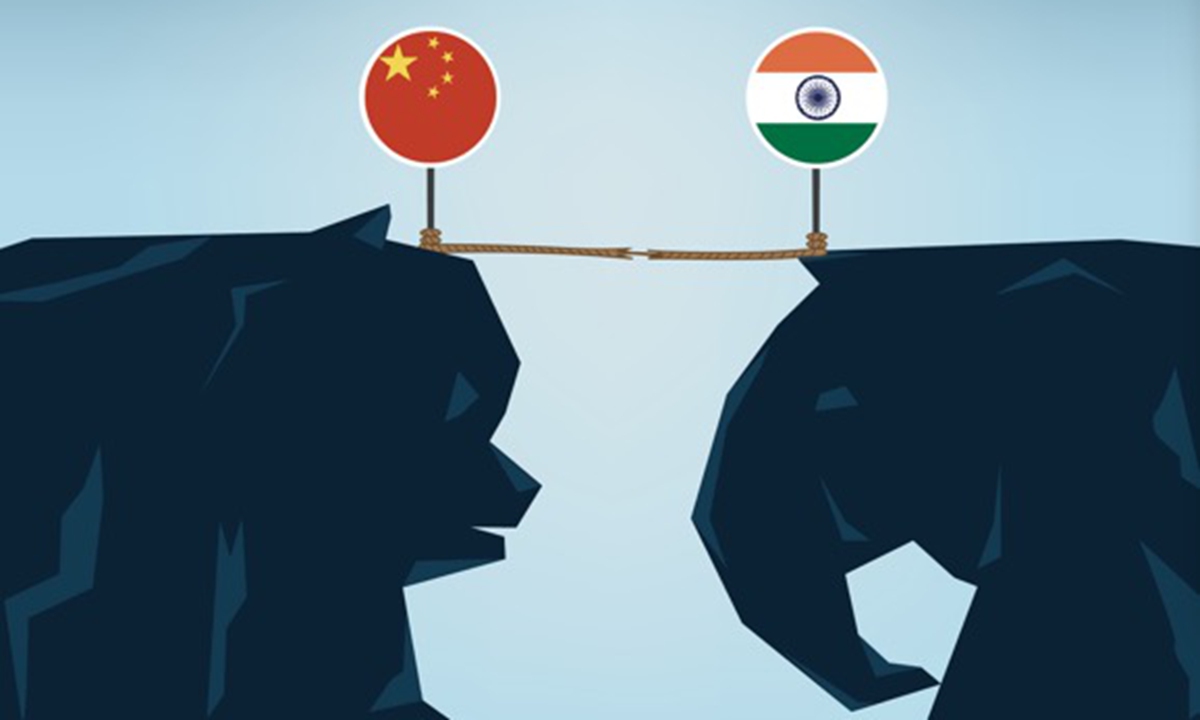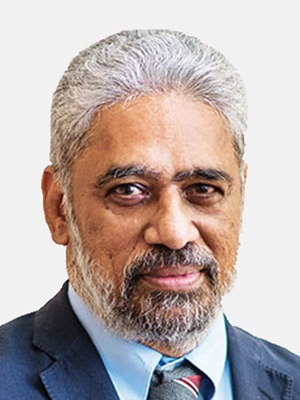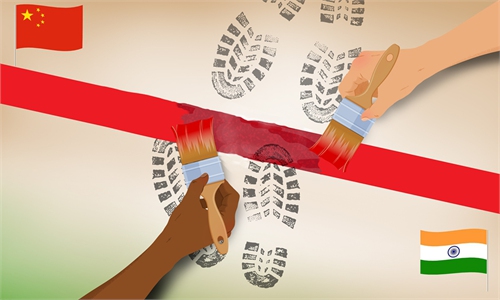
Illustration: GT
Editor's Note:
A year after the border skirmish between China and India, there are a lot of ideas on how the future of China-India relations will develop. Some observers have put China-India relations on opposite sides, believing that the contradictions between them are irreconcilable. However, Raja Mohan, Director of the Institute of South Asian Studies at the National University of Singapore, recently published an article entitled "What India can learn from China's evolving foreign policy" on The Indian Express. Indeed, what can Indians discover from China's experience? Is seeking conflict with China or siding with the US actually serving India's strategic interests? Global Times (GT) reporter Xu Yelu talked to Raja Mohan (Mohan) on these issues based on his opinion piece.
GT: You mentioned that India has more to do with balancing internationalism and nationalism. What do you think India should do improve them? What impact will this have on India's goal of becoming a great power if this is not taken care of?
Mohan: As India, an ancient civilization, emerged out of colonialism and became a new nation, its political classes were deeply influenced by the powerful currents of internationalism that swept up the world in the early 20th century. But it was not easy for them to reconcile the ideals of internationalism with the challenges of governance in the real world. I believe there is greater appreciation in Delhi today about the importance of better blending the national imperative with the international. This should help India better navigate the world and strengthen its global position.
GT: Many experts and observers believe that India can be a powerful ally for the US to counter China. How will the development of India-US relations affect the flexibility of India's foreign policy?
Mohan: India does not run to meet the expectations of others. India has a long track record of conducting independent foreign policy. It is also a large country like China and is not amenable for exploitation by others or becoming a junior partner for another power. India has never been part of alliances of any kind. I do not see India's flexibility being affected by the US relationship. India can certainly learn from the policies of Chinese leader Deng Xiaoping who opened China for greater partnership with the US and the West. Those policies immensely benefited China's modernization and rise on the global stage.

Raja Mohan
GT: In this article, you mentioned: "CCP might be the best guide for Delhi on finding the right balance between internationalism and nationalism." Can you elaborate on that? Apart from the advantages of balancing internationalism and nationalism, what else about the CPC's experience might be useful for India to shape its international influence?
Mohan: I was noting India's traditional difficulty in harmonizing nationalism with internationalism in comparison to China. The leadership of the Communist Party of China was firm in its conviction that the Marxist doctrine must be adapted to Chinese national conditions and interests. The Indian political class, I believe, often tended to be too idealistic and struggled to find the right balance between idealism and realism.
GT: You also mentioned that: "It is perhaps legitimate to ask why the Indian political classes have underperformed in realizing India's full potential." Could you explain why you think so?
Mohan: Yes, indeed. I believe Indian citizens must hold their political leaders accountable on the gap between India's promise and performance to date. I believe that gap is too wide, and it is the patriotic duty of Indians to ask difficult questions, learn from the past mistakes and seek more effective strategies for the nation's transformation.
GT: In China, countries with different political systems can coexist, while in Western countries, they are used to place more emphasis on "like-minded" mindsets. How do you see this difference?
Mohan: I believe the idea of "like-minded countries" is not limited to the West or the capitalist world. International solidarity has long been a principle of socialist and communist worldviews. The world today sees several groups of states with similar interests and worldviews actively trying to shape the global order. The world will always have a diverse set of ideas on how to organize societies. But the important thing is to prevent systemic differences from being turned into a cause for conflict; the global challenges of today demand collective solutions and this demands cooperation between types of political systems.
GT: In your view, what kind of India-China relationship best serves India's strategic interests?
Mohan: I believe a good neighborly and productive relationship with China is in India's national interest. I believe China, which today is a much bigger and more powerful country than India, will also be well-served by a positive bilateral relationship. This in turn would mean restoring peace and tranquility on the long and disputed border between our two nations. I hope this is not beyond our reach.

